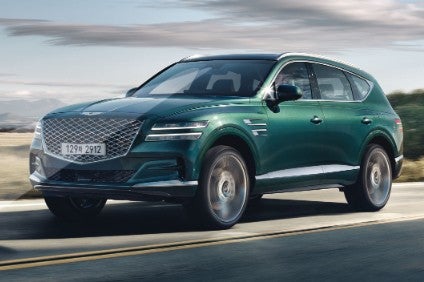
Hyundai Motor said fourth quarter sales revenue rose to KRW27.87 trillion compared with KRW25.23 trillion a year earlier as strengthened product mix with increased SUV sales offset the decline in sales volume.
The company sold 1.2m vehicles around the globe in the October-December period, 2.5% lower than the fourth quarter 2018 results amid sluggish demand in markets such as China and India.

Discover B2B Marketing That Performs
Combine business intelligence and editorial excellence to reach engaged professionals across 36 leading media platforms.
Total sales in markets other than South Korea dropped by 2.9% to 1,001,452 units while domestic sales slid 0.4% to 194,407 units.
Operating income, however, more than doubled year over year to KRW1.24 trillion from KRW501.1bn a year earlier helped by various cost innovation efforts coupled with favourable currency movement.
The company posted a net profit of KRW851.2bn, turning from a net loss of KRW203.3bn the previous year. Enhanced product mix with a higher ratio of SUV sales and continued new model momentum from popular models like Palisade SUV and new Grandeur (Azera) contributed to the improvement.
In 2019, Hyundai Motor sold 4.43m units worldwide, compared with 4.59m in 2018.
Full year revenue totaled KRW105.79 trillion, a 9.3% increase from the previous year and operating profit jumped 52% from a year earlier to KRW3.68 trillion. Net profit nearly doubled to KRW 3.26 trillion from KRW 1.65 trillion.
Despite the uncertain business environment, Hyundai Motor targets 2020 annual sales at 4.58m units, including 732,000 units in Korea and 3.84m units elsewhere.
The company also targets a 5% operating profit margin with the strengthened product mix, along with internal efforts to boost operational efficiency and cost innovation.
The company plans to maintain its 2019 year end dividend at KRW 3,000 a share, the same as in 2018.






